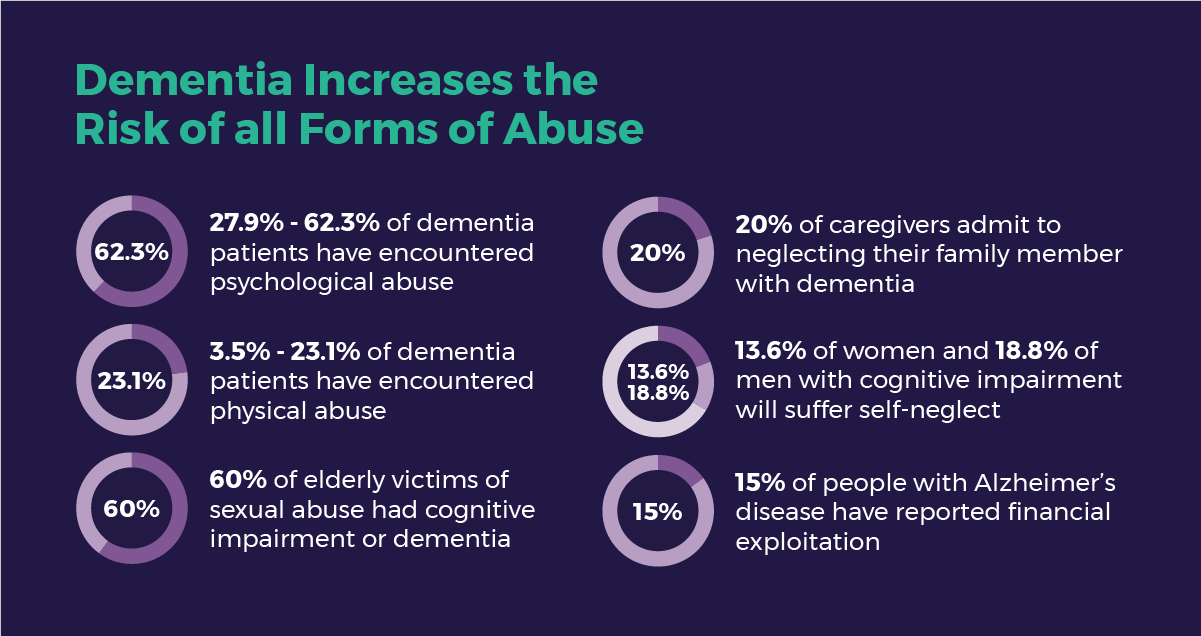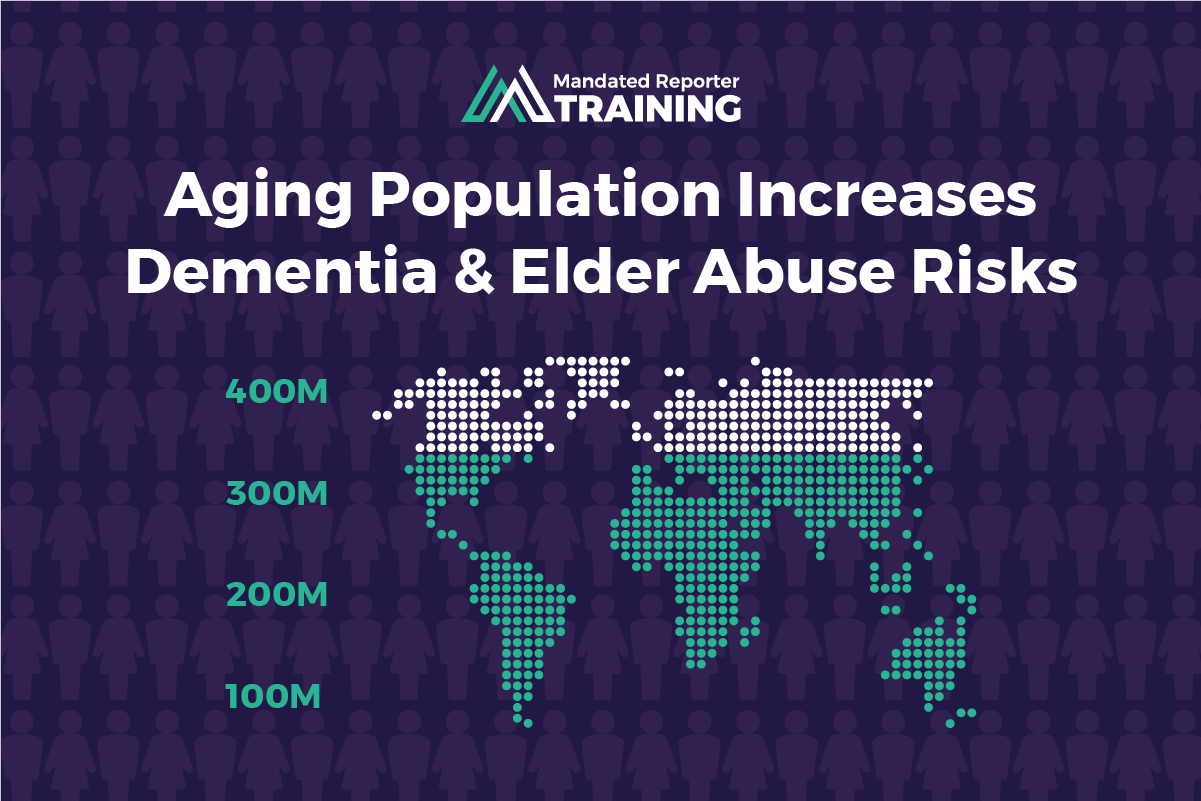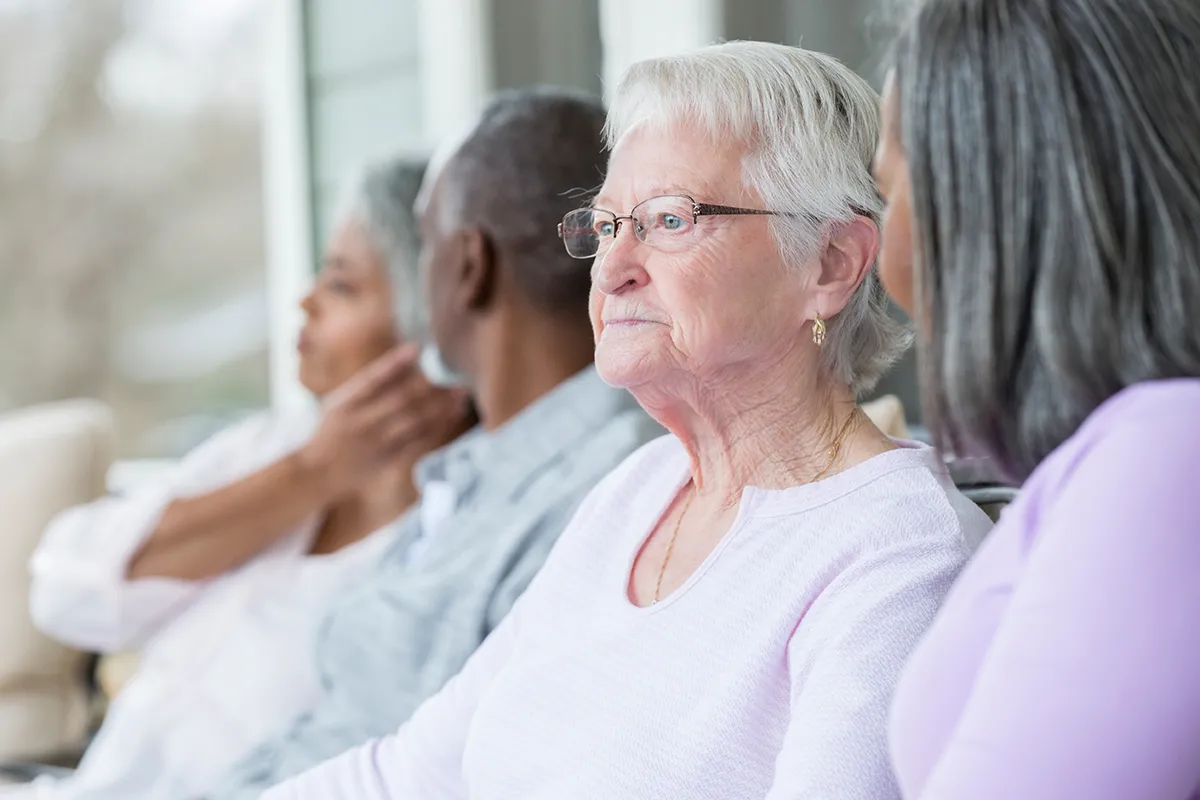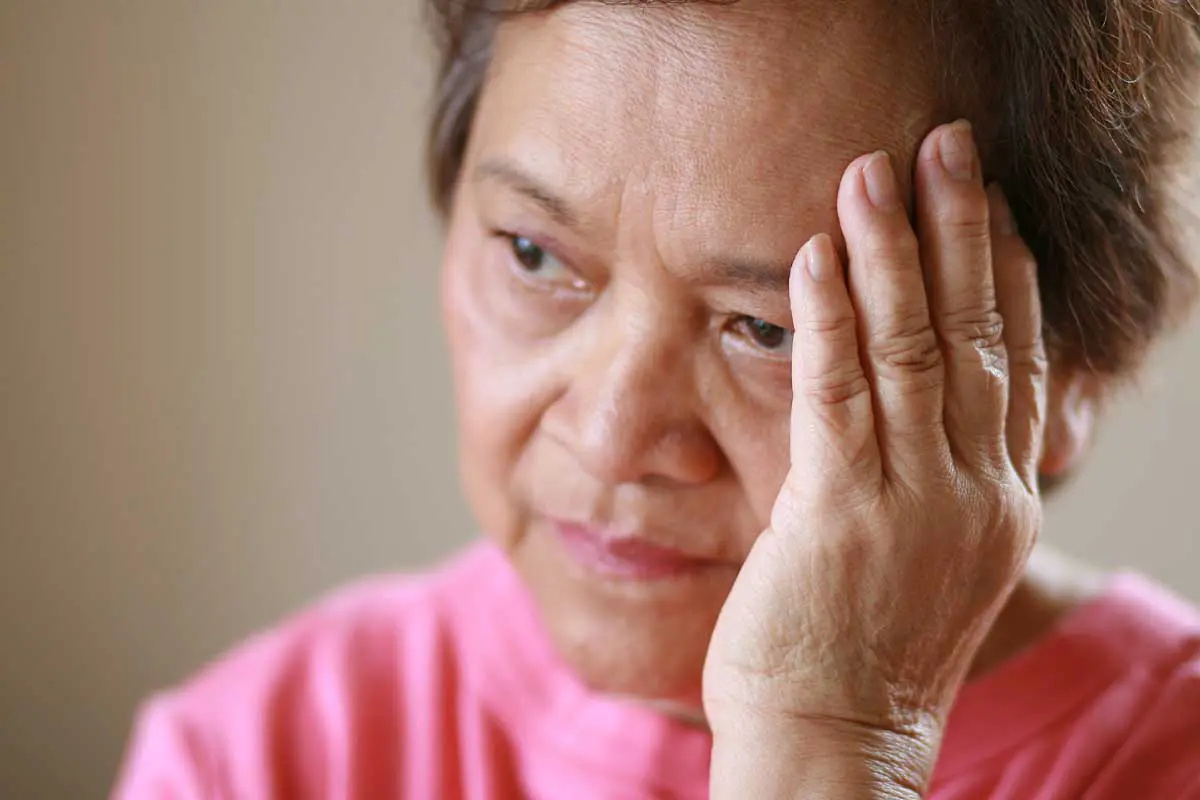The world is aging. Globally, there are 1 billion people aged 60 and older, and the World Health Organization (WHO) estimates this number will double to 2.1 billion by 2050.
As the world population ages, an increasing number of people will find themselves at risk for two age-related risks: elder abuse and dementia.
Download our infographic to learn more.
Elder Abuse Affects 1 in 6 Aging Adults
Elder abuse is a serious issue in the United States and globally. Experts are concerned that elder abuse prevalence will increase in line with population growth. The World Health Organization (WHO) estimates one in six people aged 60 and older experience elder abuse every year. Getting an accurate number is difficult — elder abuse is vastly underreported.
By 2050, it’s estimated that as many as 320 million older adults will be the victims of elder abuse.
Elder abuse is a complex issue and takes many forms.
It includes intentional acts of abuse, such as physical abuse, psychological (emotional) abuse, and sexual abuse. It also includes financial fraud and exploitation. Caregiver neglect and self-neglect are also considered forms of elder abuse.
The results of elder abuse can be devastating and even fatal; elder abuse victims experience a mortality rate three times higher than that of non-victims.
Studies have shown that common abuse risk factors include caregiver dependence, social isolation, inaccessibility of services, stress, prior violence, and poor health, including dementia.
Dementia Affects 1 in 10 Aging Adults
Dementia is another serious issue affecting aging adults around the globe. Dementia — an umbrella term related to a variety of diseases and injuries that affect the brain — is one of the leading causes of disability and dependency among aging adults. Alzheimer’s disease is the most common form of dementia, contributing to 60-70% of all cases. Alzheimer’s disease is fatal.
It’s estimated that 1 in 10 adults aged 65 and older has dementia, and that number is growing.
- 55 million people live with dementia worldwide
- That number is expected to double every 20 years
- An estimated 139 people will be living with dementia by 2050
Women are disproportionately affected by Alzheimer’s disease and dementia — nearly two-thirds of Americans with Alzheimer’s are women.
Dementia Increases Risk of Elder Abuse
Older adults with Alzheimer’s and dementia are particularly vulnerable to abuse. One U.S. study found 47% of people with dementia were victims of various forms of caregiver abuse and neglect.

Dementia and its symptoms, such as memory loss, difficulty performing tasks, problems with language, poor or decreased judgment, caregiver dependency, and withdrawal from social activities, can make an individual more vulnerable to abuse.
How Caregiver Burden Impacts Abuse Risk
The majority (80%) of people with Alzheimer’s disease and dementia are receiving care in their homes from an unpaid family member or friend. Most of these unpaid caregivers say that coordinating care is stressful, and two-thirds of unpaid caregivers struggle to find resources and support for their own needs.
Caregiver burden is a concept used to describe the stress or strain that unpaid caregivers experience when caring for a family member who is disabled, elderly, or chronically ill. Providing unpaid care can affect caregivers in a multitude of ways: caregivers have reported physical health issues, stress and emotional distress, deterioration of family relationships, isolation and loss of social activities, and economic struggles.
Research suggests that an increase in caregiver burden is associated with an increased risk of elder abuse.
Caregivers who are on the receiving end of aggression and physical assault behaviors by a dementia patient are also more likely to be associated with elder mistreatment. The onset of dementia has been linked to aggressive and angry behaviors; one study found that 20% of new dementia patients behaved aggressively toward their caregivers — even loved ones.
Being on the receiving end of aggressive behavior can add to an unpaid caregiver’s burden, increasing the risk of elder abuse.
Elder Abuse is Underreported and May be Fatal
Getting an accurate number for dementia abuse is challenging because elder abuse is often under-reported. Adults with dementia often rely on caregivers and may be hesitant to report abuse because of the fear of retaliation or loss of support.
One study estimates that for every reported case of elder abuse, another 23.5 cases go unreported.
The risk of mortality associated with elder abuse and neglect may be higher in adults with cognitive impairments like dementia. One study of older adults found those with the lowest levels of cognitive function who reported neglect or abuse had a higher risk of mortality compared to those who did not experience neglect or abuse.
For some older adults, particularly those with dementia, preventing abuse may be a matter of life or death.
You Can Help
You can help protect older adults and dementia patients against abuse and neglect.
Learn to recognize the signs of elder abuse and how, when, and where to report suspected instances of elder abuse and neglect. It’s estimated that for every reported case of abuse, 23.5 cases go unreported. Elder abuse prevention training courses are available at MandatedReporterTraining.com.
Immediately report suspected instances of abuse, neglect, or self-neglect of an elderly adult, dependent adult, or dementia patient to adult protective services, local law enforcement, or a long-term care ombudsman. You can also call the Alzheimer’s Association at (800) 272-3900 for help finding a reporting agency.
Check in with older adults in your family, neighborhood, or community. Look and listen for signs of abuse or neglect. Isolation is a risk factor for abuse, so stay connected to your loved ones as they age.
Support the caregivers in your life. Caregiver burden can increase the risk of elder abuse. If you have a friend or family member who is a caregiver for an elderly, dependent, or chronically ill adult, offer your support.
To learn more about Alzheimer’s disease and dementia, visit the Alzheimer’s Association.



